Mid subject surveys (MSS)
An MSS is highly recommended. MSS use is at the discretion of Subject Coordinators.
Survey instrument and frequency
The offering of an MSS to students is at the discretion of Subject Coordinators, and faculties.
As to the frequency of surveys for gauging students learning experience of a subject:
- An MSS in the 'middle' of a subject. Note this is not necessarily a 'mid-term' event, it could be after a particular portion of the subject curriculum or assessment activity, as makes sense within the context of the subject
- A single MSS could be offered
- Regular 'pulse' polling may be the preferred method.
Subject Coordinators may use the recommended MSS questions which they can modify and add additional questions to.
Importing the recommended MSS into your LMS subject
Subject Coordinators may choose to import the 6 recommended MSS questions via an LMS survey from Commons.
- Log in to the LMS.
- In the global navigation menu, click Commons:
- In the search field, enter mid subject survey .
- Click the mid subject survey link.
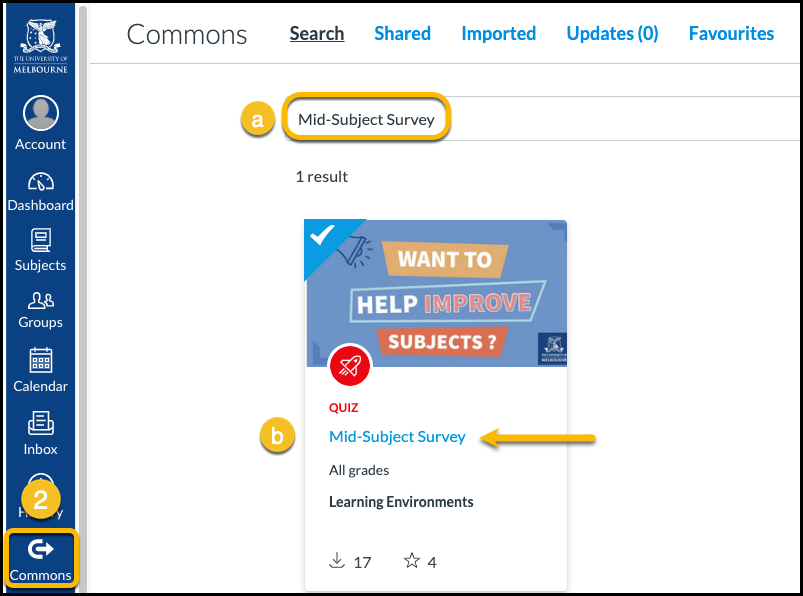
- Click the Import/Download button.
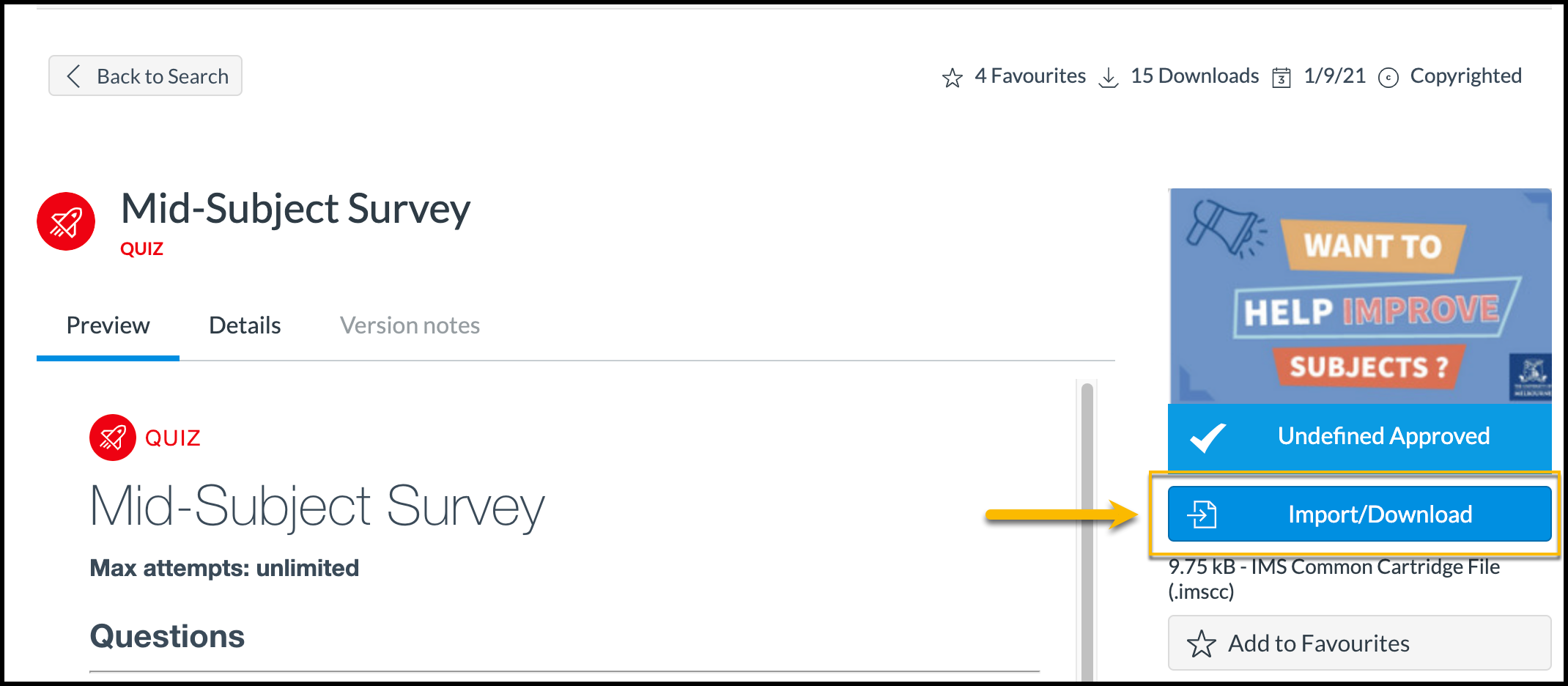
- Select all (or specific subjects) you wish to import the MSS quiz to, then click Import into Course.
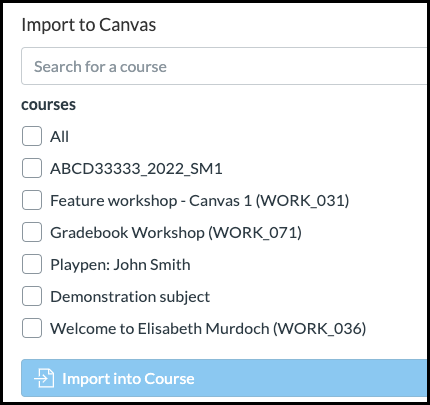
- Once complete, a successful message in green will appear at the top.
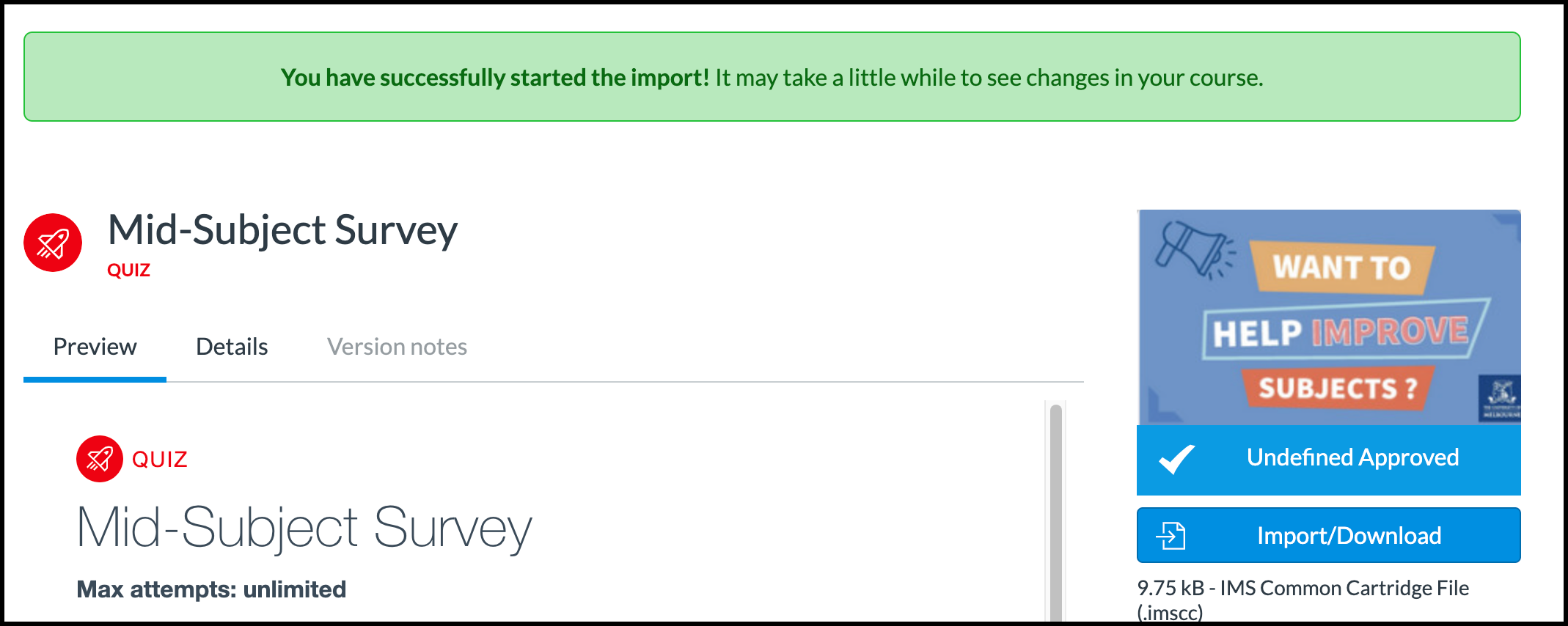
- Navigate to the subject(s) you have chosen to import this survey to, then click Quizzes. The mid subject survey will appear under the Surveys module.
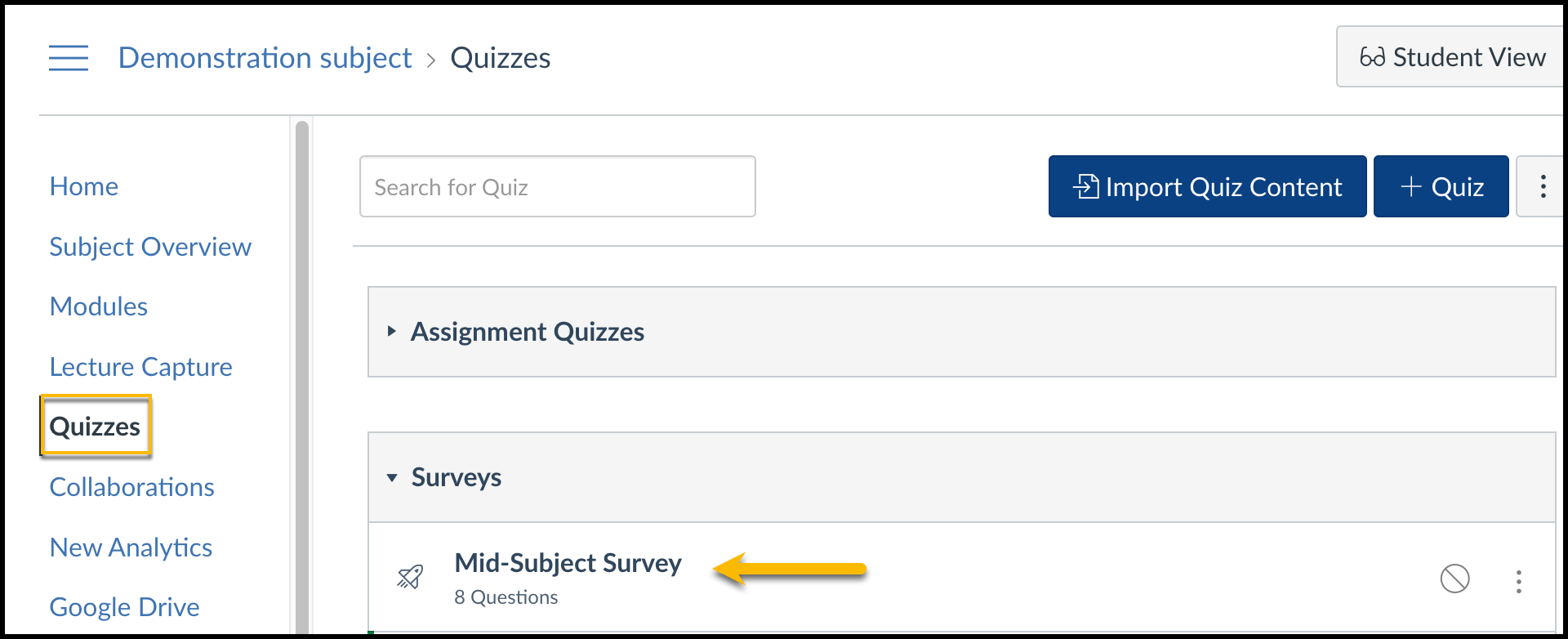
- Click the mid subject survey to review:
- Survey settings.
The default settings of the survey are set to be anonymous. This may be changed by teaching staff. However, students must be correctly notified if the survey is anonymous or not, prior to undertaking the survey.
Please ensure you include such a statement when promoting the MSS to your students.
- Click the Questions tab to review/add questions.
- Select availability dates for the MSS.
- Click Save and publish.
- To view results at the end of the MSS, please see this guide.
What is the thinking behind the introduction of the MSS?
The TALQAC Working Group has concluded that a mid-subject formative/diagnostic survey (MSS) would be valuable for Subject Coordinators, noting the positive reaction to and apparent benefits of the diagnostic surveys with rapid turnaround for feedback, such as was achieved in 2020.
It is recognised that the idea of an MSS survey is not consistent with either reducing the survey demands on students or reducing overall administrative load and costs, but there is strong case for an MSS nonetheless.
The findings from an MSS would be confidential to Subject Coordinators, the purposes of the survey would be solely developmental.
Staff would not be required to provide MSS findings for annual performance review, confirmation or promotion, though they might choose to do so.
The Working Group believes that an MSS would be a highly valuable tool for enhancing the student learning experience and that it should be available across all subjects.
As a first step, it is recommended that an MSS be offered to Subject Coordinators on an opt-in basis and that patterns of uptake and utility are monitored over 2-3 semesters.
Questionnaire design
The TALQAC Working Group concluded that the questionnaires for the MSS and ESS should have a mix of 5-point scale items and open-ended items, continuing the present practice, noting that the findings from the open-ended items are highly valuable for Subject Coordinators.
It is recommended that the core items for an MSS would mirror those used in the more summative ESS, though the tenses would be modified.
The Working Group believes that Subject Coordinators and faculties should not have the option to add questionnaire items to the ESS. This capacity has now been removed from the ESS going forward.
Subsequently, where there are additional information needs these should be managed locally by Subject Coordinators and faculties without central Learning Environments support. The Working Group is aware of subjects where there are distinct, identifiable streams that have quite specific foci and often quite distinct teaching and learning methods (such as the practices in MLS and FFAM, for example). The present administration of the survey does provide findings for these individual streams and thus is of limited value for professional development and quality assurance purposes. In some of these subjects, the opportunity to add additional items has been used as a way to ‘unpack’ the streams. The Working Group is of the view that a superior approach is to survey the streams within subjects independently, as though these are stand-alone subjects, and to report the findings accordingly. This should be feasible via the LMS.
Finally, with regard to the questionnaire design the Working Group notes that while dual delivery teaching and learning formats remain in place it would be valuable to collect information on the potentially different experiences of students across the modes of delivery/participation (for example, in-venue vs dual delivery BSL or LSL modes). This would require careful attention to ensuring respondents’ modes of participation are captured, noting the likely increase in the complexity of survey design and data analysis and reporting.
Background for consideration
The noted deliberations of the Working Group
With a view to potentially reducing the amount of surveying —in the context of possible ways to reduce the survey demands on students and the overall scale/cost of the surveys — the Working Group considered a number of possibilities for survey frequency and also whether students within a subject might be sampled for survey purposes rather than the present practice of surveying the entire student population in a subject.
After some deliberation, the Working Group concluded that it is a fundamental principle that all students should be provided with an opportunity to provide feedback rather than a sample of students. It is noted that further efforts are needed to communicate to students their obligations to provide feedback to assist in the ongoing enhancement of teaching and learning.
The TALQAC Working Group also believes that, on balance, it is important for all subjects to be surveyed each time they are taught rather than on a less frequent cycle. This conclusion is based on the belief that the finding provides important contemporary information on the student experience that can be used in subject development and quality assurance. The Working Group did not believe a surveying cycle of less frequent surveying would be as academically useful and would create administrative complexity in questionnaire deployment.